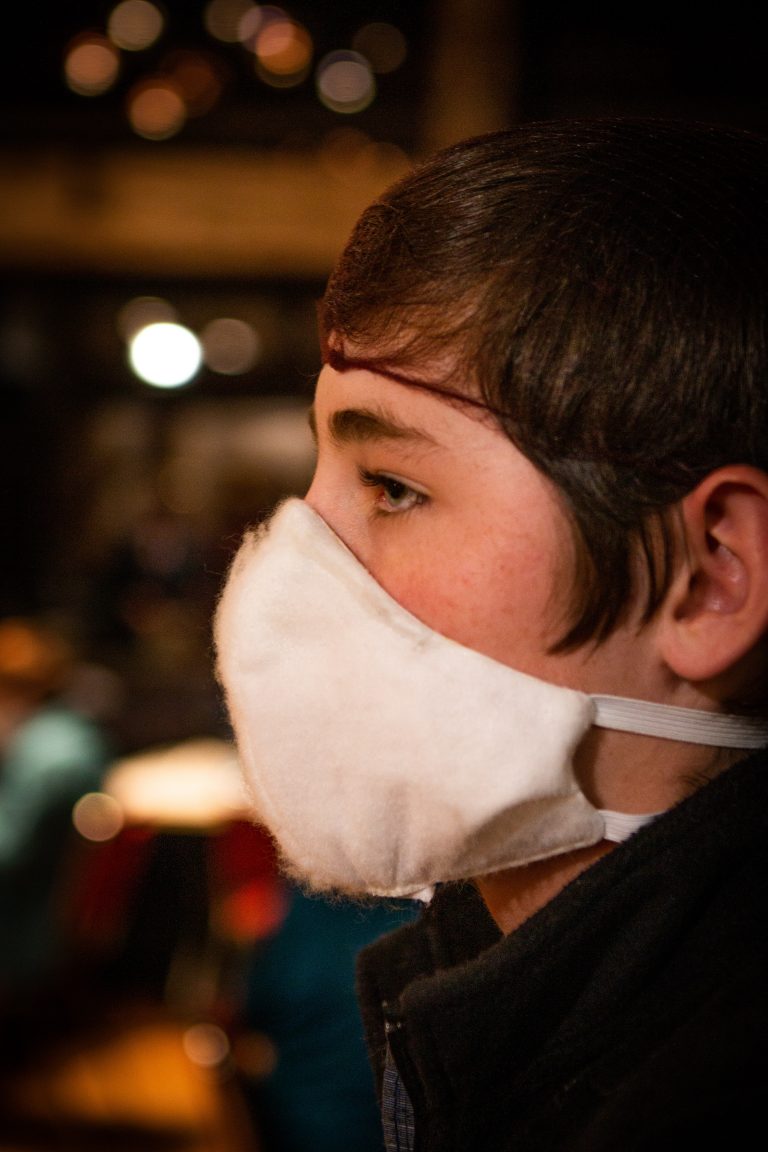“When I was a boy and I would see scary things in the news, my mother would say to me, “Look for the helpers. You will always find people who are helping.” – Mr. Rogers
This timeless quote from a childhood icon of mine has always resonated with me as a child life specialist who helps children and families cope with the uncertainties, anxieties, and trauma that come with chronic illness and hospitalization. Doctors, nurses, respiratory therapists, medics, social workers, child life specialists, chaplains, physical/occupational therapists, nutritionists, speech therapists, medical receptionists, environmental services, facilities, IT, volunteers, the food service staff who keep the hospital running with coffee and fresh muffins, just to name a few, have always been and always will be “the helpers”.
So how is being a helper different while working in a pandemic?
Doctors and nurses no longer have students who are learning to be helpers.
Volunteers are no longer allowed to be on campus.
Social workers who can complete their work at home, stay home.
Child life specialists and chaplains might not be able to provide the invaluable services that they normally would in a sad or scary situation because of infection control.
The food service staff has to cut back on workers who are present at one time.
Life is disrupted. We’ve learned to function with this new normal.
We make sure we stop drinking our coffee 10 minutes before we get our temperatures taken at the door every single morning.
We wear masks every minute we’re in the building and try to compensate for our hidden smiles of reassurance for children and families who are already nervous.
We learn to adapt without our volunteers to help us clean toys, play with kids and bedside, and rock the fussy baby in the NICU whose parents can’t be present because they live three hours away.
We limit four to an elevator, with blue “x”’s specifying how far we must remain from each other
We’re reminded if we’re sitting too close to a coworker during a lunch break while trying to catch a break from the whirlwind of our new reality.
We enforce rules that go against every compassionate fiber in our being for the safety of our patients, families, and staff.
We’re helping parents explain to their other children at home why they can’t come visit their sibling in the hospital.
We help support children with sensory issues who are having a difficult time wearing a mask of their own.
And still, we show up.
We show up ready to work, mask on our face to keep bringing the care our patients and families deserve. We still strive to make a difference, just as we did before this pandemic and just like we will continue to do long after this pandemic is over.
The general population has labeled essential healthcare workers such as myself as “heroes”.
And while I’m not negating the danger and risk that come with the responsibility of being essential in healthcare, I still have trouble with claiming the word “hero”.
The heroes are the single moms who are trying to balance working at home and homeschooling their children.
The heroes are the high school and college seniors, missing out on the once-in-a-lifetime milestone of graduations but still remaining positive for the future.
The heroes are the athletes and performers coping with their final performance or game being robbed of them.
The heroes are the ones keeping food on our shelves in the grocery stores, running our pharmacies, delivering us our mail and Amazon splurges, staffing our banks, and packing up our typical dinner night out into boxes for us to eat at home.
The heroes are the ones finding ways to still love and support those who feel extra isolated.
The heroes are the ones continuing to do volunteer work and gather supplies for the homeless, even if in the garage of their home.
The heroes are the teachers learning an entire new approach to education, and mourning the loss of the exciting plans they had for their students this semester.
The heroes are the pastors and worship teams still showing up every morning to empty seats, ready to live stream Sunday service.
Continuing to show up to work during this pandemic is brave. It’s hard. It’s exhausting, emotional, and seems like it will never end. Is it heroic? Maybe to some. But, if I’ve learned anything from this experience- it’s that the heroes are all throughout our community, not just within the four walls of a hospital.

